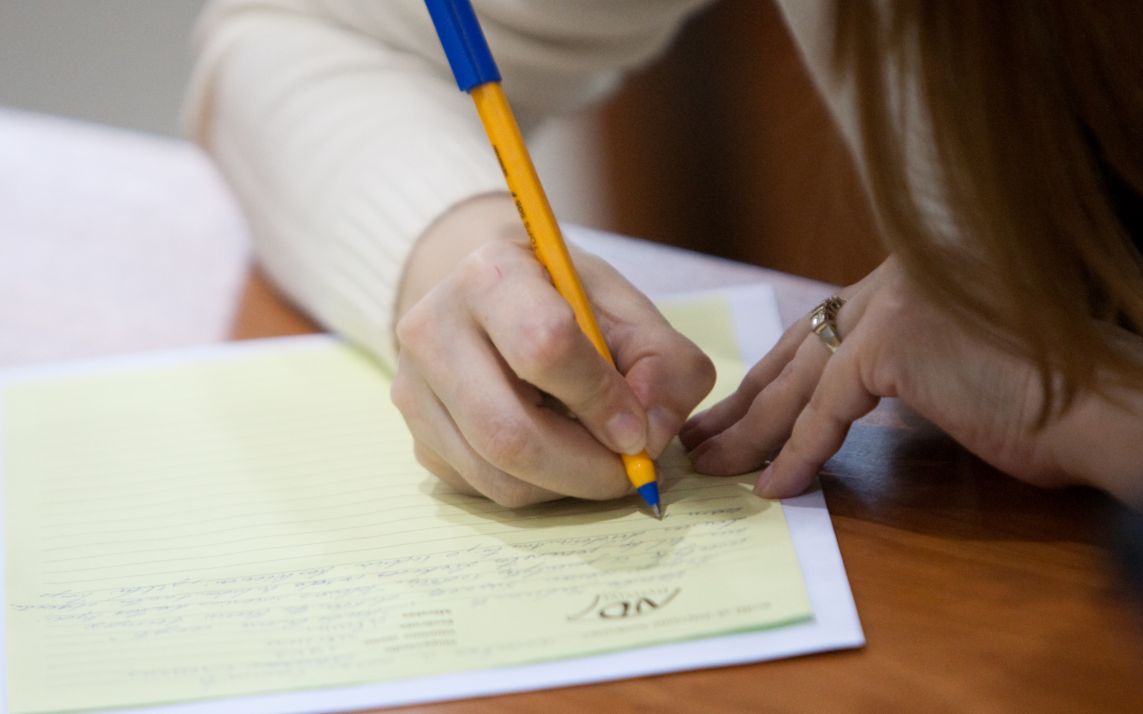- July 4, 2023
- 785
The draft bill allowing women to write their last names with the ending -a has been accepted at the stage of submitting applications

The Sejm will consider an amendment to the law concerning the entry of names and last names in documents. This new law provides for the possibility of adding the endings -a or -ia to women’s surnames.
The amendment regarding the recording of women’s surnames
On Tuesday, at the stage of applying, representatives backed the initiative of Ivea Pakarklytė, a member of the Freedom faction. 55 parliamentarians voted in favor, 31 against, and 19 abstained from voting.
If the Sejm consents, women will be able to adopt last names with the endings -a or -ia, if the surname is a derivative of a male last name with the same ending, for instance, Noreika, Šalna, Šarka, or Stundžia.
Presenting the project, MP Ieva Pakarklytė noticed that currently, women have the option of adding suffixes -iene or -ė while taking their husband’s last name. Even if her husband’s surname is feminine and ends with -a or -ia. ‘But surnames like Lydeka and Šarka are impossible’ – the representative pointed out.
MP stated that the proposed amendment does not violate tradition and the choice of the last name is related to an individual’s private life.
‘The proposed amendment to the law concerns the regulations of the private life of an individual, and it is not a matter within the professional competence of linguists. […] Creating last names does not concern language, but rather an individual’s private life’– said Ieva Pakarklytė.
Pakarklyt thinks that women should have the chance to choose their last names.
Debates on the project – different opinions on female surnames
On the eve of the State Holiday, MP Stasys Tumėnas called this initiative a kind of provocation. ‘Such a proposal shows that grammar courses should be conducted in the Sejm as soon as possible. Female surnames with the ending -a are characteristic of the Russian-speaking environment, characteristic of Poles. Why should Lithuanian women have to bear such surnames ending with -a?’ – said S. Tumėnas calling for opposition to the project.
MP Valdemaras Valkiūnas pointed out that currently, surnames allow distinguishing between a married woman and an unmarried one. ‘We are approaching to erasure of gender’ – said V. Valkiūnas about the project.
Professor Eugenijus Jovaiša, also an MP, noted that in his entire scientific career, he had never heard of the combination of surnames presented during the presentation of the project. ‘I would like to know who I am –Jovaiša?’ – the politician remarked.
Parliamentary Committees on Education and Science, Law and Order will examine the amendments to the law proposed by Ieva Pakarklytė, the member of the Freedom faction. The State Commission of the Lithuanian Language will also present its position on this matter. The amendments to the law will be reconsidered by the Sejm during the autumn session.
Translated by Agnieszka Julia Olchowik within the framework of a traineeship programme of the European Foundation of Human Rights, www.efhr.eu.

